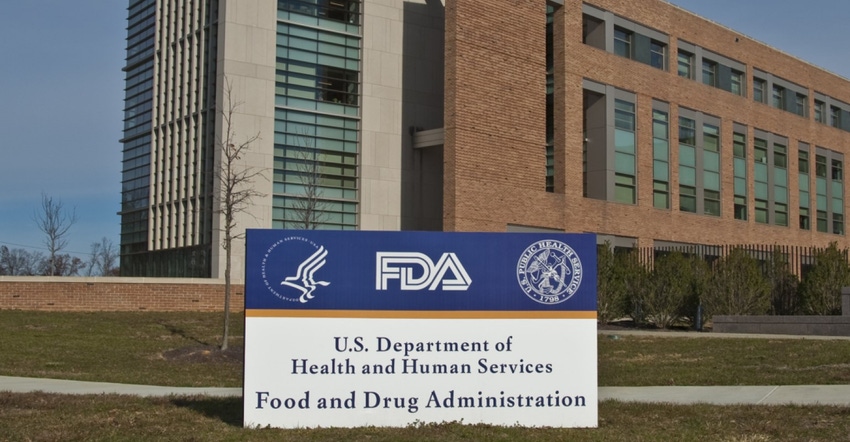FDA halts foreign food inspections in wake of coronavirus
In the interim, FDA plans to employ additional tools to ensure safety of products imported into U.S.
March 11, 2020

After careful consideration in response to the COVID-19 outbreak, the U.S. Food & Drug Administration said it is postponing most foreign inspections through April, effective immediately. Inspections outside the U.S. deemed mission critical will still be considered on a case-by-case basis, FDA Commissioner Dr. Stephen M. Hahn said in a statement.
FDA said it based this decision on a number of factors, including Level 4 travel advisories from the U.S. Department of State prohibiting travel for U.S. government employees, Centers for Disease Control & Prevention travel recommendations, access restrictions being imposed on foreign visitors by certain countries, guidance from the Office of Personnel Management and the importance of the health and safety of FDA employees.
“Another critical factor in taking this action is the confidence we have in our ability to maintain oversight over international manufacturers and imported products using alternative tools and methods,” Hahn said in the statement.
Hahn noted that FDA is aware of how this action may affect other FDA responsibilities, including product application reviews. “We will be vigilant and monitor the situation very closely and will try to mitigate potential impacts from this outbreak in lockstep with the whole of the federal government. We stand ready to resume foreign inspections as soon as feasible,” he said.
FDA said when it is temporarily not able to physically inspect foreign-produced, FDA-regulated products or manufacturers, it plans, as an interim measure, to employ additional tools to ensure the safety of products imported into the U.S., which have proved effective in the past. These include denying entry of unsafe products into the U.S., physical examinations and/or product sampling at U.S. borders, reviewing a firm’s previous compliance history, using information sharing from foreign governments as part of mutual recognition and confidentiality agreements and requesting records “in advance of or in lieu of” on-site drug inspections. For example, the agency began exercising this authority when it postponed on-the-ground inspections of manufacturers of FDA-regulated products in China earlier in the outbreak. This is all part of FDA’s multipronged and risk-based approach to ensuring quality as well as compliance with applicable federal laws and regulations, Hahn explained.
FDA will continue working with U.S. Customs & Border Protection to target products intended for importation into the U.S. that violate applicable legal requirements for FDA-regulated products; these may come from a variety of sources, such as first-time importers unfamiliar with regulatory requirements or repeat offenders trying to skirt the law.
Through its risk-based import screening tool (PREDICT), FDA has the ability to focus its examinations and sample collections based on heightened concerns of specific products being entered into U.S. commerce. The PREDICT screening continues to adjust risk scores as necessary throughout the COVID-19 outbreak. “We are keeping a close eye out for indications of port shopping or cargo diversion and will continue our oversight of shipments through potentially higher-risk venues such as International Mail Facilities. We can refuse admission of products that fail sample testing or may violate other applicable legal requirements,” Hahn said.
“Americans can rest assured the FDA is diligently monitoring this outbreak and the impact to our operations," Hahn added. "Our leadership team meets daily to talk about the myriad of urgent issues facing us as we actively facilitate efforts to diagnose, treat and prevent the disease; survey the medical product supply chain for potential shortages or disruptions and help to mitigate such impacts, as necessary, and leverage the full breadth of our public health tools, including enforcement tools to stop fraudulent COVID-19 activity.”
He concluded, “As this remains a dynamic situation, we will continue to assess and calibrate our approach as needed to help advance federal response efforts in the fight against this outbreak.”
FDA, an agency within the U.S. Department of Health & Human Services, protects the public health by assuring the safety, effectiveness and security of human and veterinary drugs, vaccines and other biological products for human use and medical devices. The agency also is responsible for the safety and security of the nation’s food supply, cosmetics, dietary supplements and products that give off electronic radiation and for regulating tobacco products.
You May Also Like



